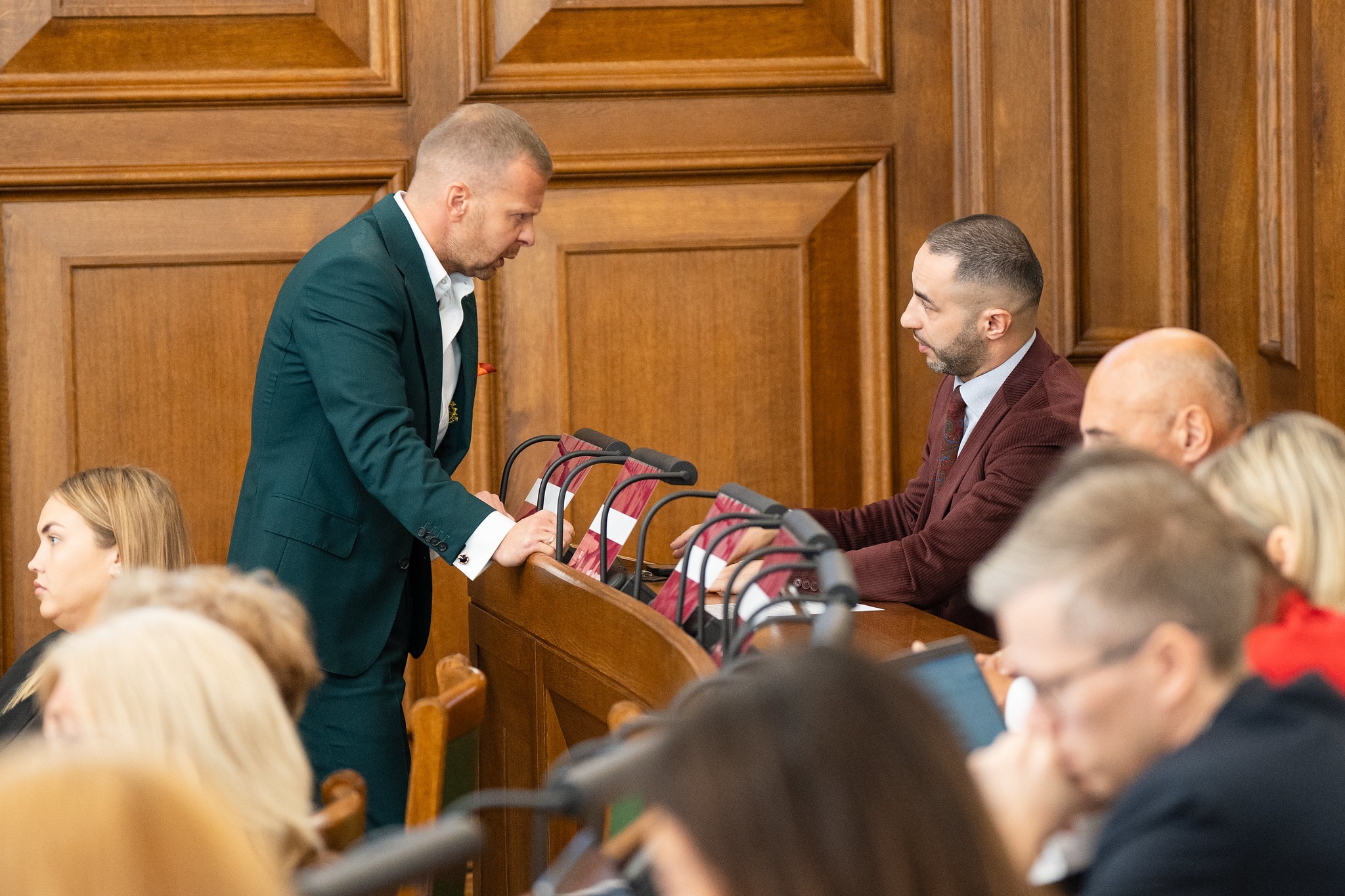
Main narratives:
- Latvians are Russophobic;
- The government is Russophobic.
Overview:
Aleksejs Roslikovs, leader of the Stability! party, created a significant political controversy when he disrupted parliamentary proceedings during debate over a declaration proposed by the National Alliance claiming to address legacy Soviet-era Russification policies in Latvia. This proposed declaration on “the criminal Russification of Latvia by the Soviet occupation regime and the prevention of its linguistic consequences,” called for the state to establish restrictions on Russian language use in Latvia’s public life and likely was strategically proposed by the National Alliance right before the municipal elections. Similar proposals were raised but never implemented before the previous parliamentary elections.
Prior to the incident, Roslikovs used TikTok to warn that the National Alliance had proposed legislation to “completely ban use of Russian language in public places,” characterizing this as “NEO-NAZISM” and urging followers to share his message. During the proceedings, Roslikovs delivered an emotional speech that many Latvian parliamentarians and citizens found offensive, concluding in Russian with the statement “There are more of us and the Russian language is our language!” while making an offensive gesture.
Following his expulsion from the debating chamber, Roslikovs doubled down on his message through TikTok posts, repeating his parliamentary statement: “THERE ARE MORE OF US! WE CANNOT BE BANNED!” These posts were by far the most engaged content since the beginning of this disinformation monitoring project, attracting over 2 million views each and attracting thousands of comments, hundreds of thousands of reactions. It is highly likely that these posts were widely viewed outside of Latvia as well. The controversy was subsequently exploited by pro-Kremlin propaganda media, demonstrating how domestic political incidents can be weaponized to serve Russian information warfare objectives. In the aftermath, Latvia’s State Security Service opened an investigation into the Member of Parliament on suspicion of “providing assistance to the aggressor state” Russia and “inciting ethnic hatred.”
The declaration calling to Parliament to limit use of Russian languages in public spaces proposed by the National Alliance was rejected by the parliament. This was no more than a pre-election stunt by the National Alliance. However, this incident and Roslikov’s reaction shows how nationalist and Russian political parties are playing one off another in Latvia, often providing bullets to Kremlin’s propaganda.









